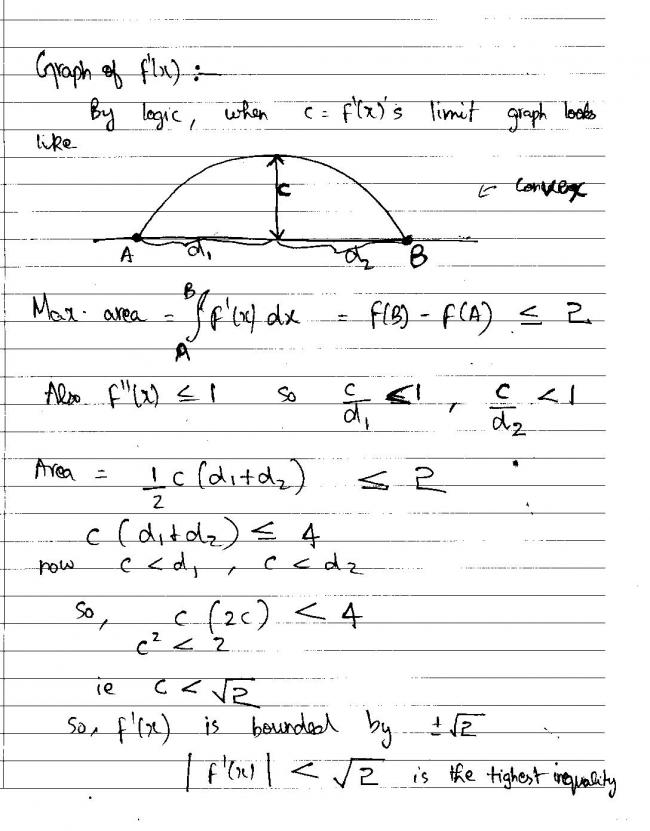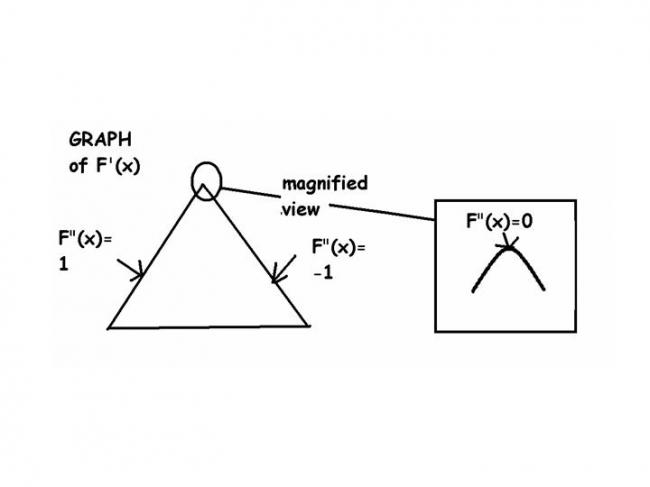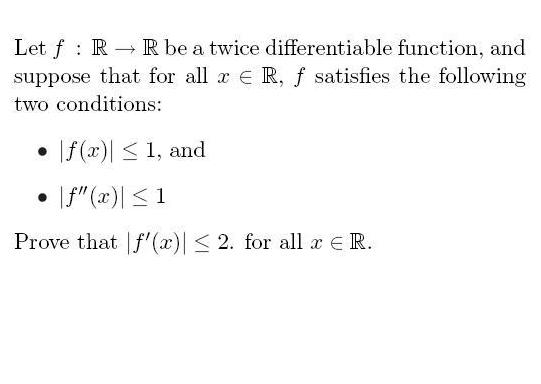i thought it was a good one. not even worth a look?
8 Answers
This was asked by Kaymant sir long back.
For, any x we have :
f(x+2)=f(x)+2f'(x)+\frac{1}{2}.2^{2}f''(c)
for some c\in (2,x)
This is a corollary of the taylor's theorem.
so, we get :
f'(x)=\frac{1}{2}(f(x+2)-2f''(c)-f(x))
so, we get :
|f'(x)|\leq \frac{1}{2}(|f(x+2)|+2|f''(x)|+|f(x)|)\leq 2
dude , the point is not to obtain the solution.
i am sure not all would have understood your first step. ( EVEN ME)
can u explain your first step?
that was a solution flicked from mathlinks.
http://www.goiit.com/posts/list/differenciation-challenge-no-2-74440.htm has a solution that uses ideas familiar to jee aspirants.
actually there exists a tighter inequality involving a more fundamental proof
see this :

NOTE : above is an extremum case
actually dia is not convex
its a mountain of slopes 1 and -1 and a curve on the top of the mountain to make it differentiable ( as else itll be a inverted V which is not differentiable)
LOGIC :
WLOG lets deal with abv x axis , below x axis wud have same result
for any max f'(x)=c , for occupying min area we need the graph to slope steeply
ie |f"(x)| =1 for major part of the graph
this justifies our choice of taking graph as stated in NOTE .
its evident area is prop to c
now max c implies min area at that c is equal to 2
so proof follows

this was the extremum i was saying
its partially concave
ignore first pic
